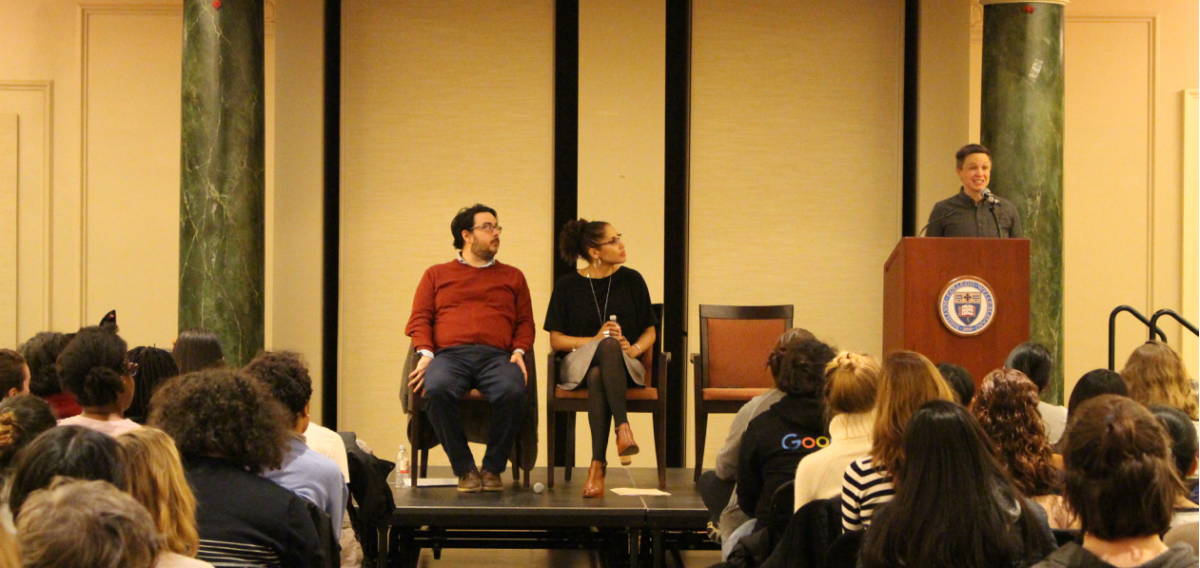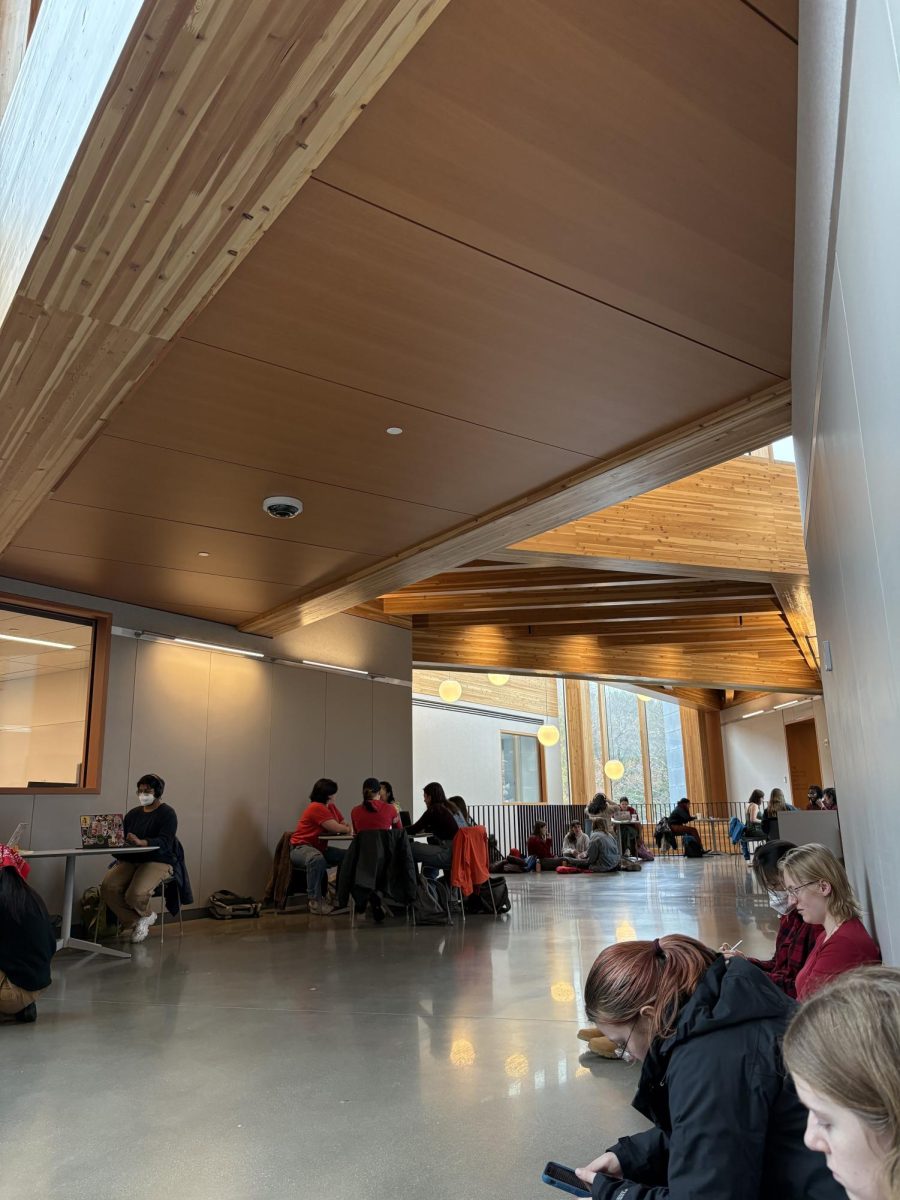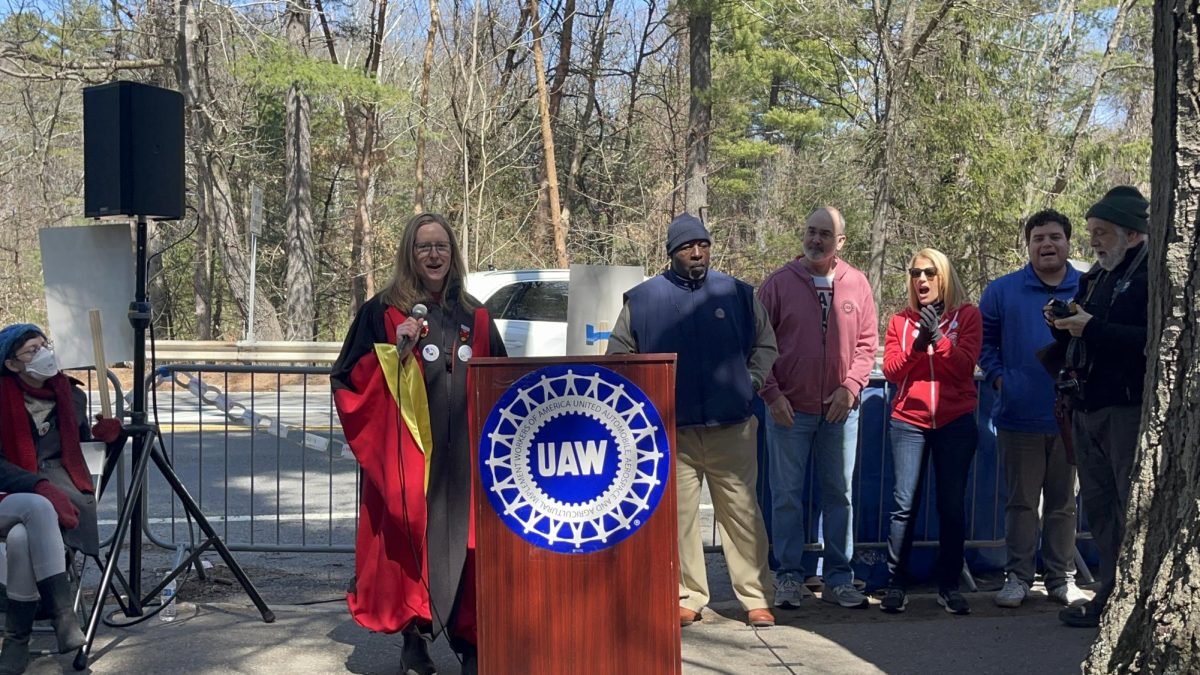On Nov. 29, the College hosted a teach-in in order to address the 2016 Presidential Election. The event was titled “Race and Resistance in the Age of Trump,” and was hosted by Assistant Professor of History Ryan Quintana, Assistant Professor of History Brenna Greer and Associate Professor of Political Science Laura Grattan. Professor Quintana stated that the impetus behind the event came from College administration and faculty alike. The teach-in was well attended by students, faculty, staff and members of the Wellesley community.
“First, the Provost’s and Dean’s offices requested suggestions for possible panels for a teach-in following the election and the subsequent events that transpired (and continue to occur) on this campus and around the country,” Quintana stated.
At the College’s request, faculty members took initiative in planning the talkbacks and tailoring them to issues of particular interest to the Wellesley community.
“Given this offer of space and time to interact with the campus community, I asked Prof. Greer and Grattan if they would be willing to participate on a panel that focused on the history and contemporary ideas of race, resistance and politics. Professor Greer and myself are both social and cultural historians of race and politics in US history, while Professor Grattan is a political scientist who writes about race, politics and grassroots movements,” Quintana added.
Prior to the panel, Quintana underlined the approach he intended to bring to the event.
“The difference, at least from my perspective, is that as a historian I hope this conversation provides those in attendance with a much broader historical perspective on this moment in time,” Quintana stated. “I think it’s important that we consider how the election and its aftermath are symptomatic and part of a much longer history that we must truly begin to reckon with.”
“As we hope to make clear in our panel, however, just as the past can illuminate the deep roots of our contemporary challenges they also remind us of the varied ways that people have resisted such moments,” he added.
Quintana began the teach-in by sharing his family history and emphasizing the need for individuals to listen to the stories of the members of their respective communities. He continued to analyze the problems that arise when individual histories are embedded within the popular narrative of American history, arguing that this narrative excludes the stories of coercion, racism and exclusion.
Professor Greer spoke next and addressed the present state of socio-political thought in the United States, specifically asking, “how did we get here?” She began by arguing that “we’ve done a lot of forgetting. We either don’t know or we choose to forget our history, particularly in regard to race and racism.” She continued to refute assertions which state that Obama’s presidency was the culmination of the Civil Rights struggle, arguing that while she by no means intends to undermine the historical significance of his presidency, the event was a single instance of what should be the norm. She then presented a number of factors which contributed to the rise of Donald Trump, among them the rise in consumerism and white nationalism inspired by the Obama presidency.
Most prominently, Greer underlined the importance of identity politics, political correctness, and post racial events in language. Greer insisted that the appropriation of political correctness was a key element in allowing Trump supporters to legitimize their inflammatory rhetoric.
Greer’s primary argument was that in the present era, the American people are unable to call racism what it truly is and asserted that the conflation of racism with bigotry is at the heart of this disease. Bigotry, she argued, is the combination of racial prejudice and racial animosity, while racism is the combination of racial prejudice and institutional power. The conflation of the two terms, Greer continued, allows individuals who are racist to ignore their racism by asserting their lack of bigotry. This propagates institutionalized racism and gives legitimacy to acts of microaggression that are racist in actuality.
“No one who has come of age in the United States is free of racial prejudice towards people of color,” Greer argued. “Being white in the United States and not being racist, is like being an American and not using plastic. It’s possible, but it requires constant vigilance.”
Grattan concluded the formal presentation of the teach-in, arguing that there are significant differences between legal and legitimate acts. “If popular sovereignty matters, Trump is illegitimate,” Grattan argued. “His policy proposals would further enshrine inequality in American institutions.”
Grattan insisted that Trump could very well push forward illegitimate policies under the “veneer of legality.” She continued to argue that the most successful way to “delegitimize a law is to breakdown the legitimacy” Trump has received as a candidate and the legitimacy he is continuing to incur as Democrats and Republicans alike attempt to normalize his election. Grattan concluded by arguing that the marginalized groups have used non-compliance as a form of resistance which serves to undermine legitimacy, and that it is a form of resistance by which we can actively protest the actions of the President-elect.
Following the lecture portion of the teach-in was a discussion wherein attendees raised questions regarding how to engage in conversations about racial prejudice, how to take meaningful activist roles, and how to thoughtfully interact with their peers. Students raised concerns about the challenges of activism outside of the Wellesley ‘bubble’, and the speakers provided advice about how to apply values learned at the College in circumstances in society at large.
The teach-in ultimately brought voices from different academic differences, sociocultural backgrounds and ages to discuss potent, relevant issues in an intellectual, respectful and engaging space.
“This moment is different than those in the past — new technologies and changing circumstances present new challenges, just as hard-won social gains present new opportunities for community building and resistance — and yet the past can help us better understand moment, exposing the deep and more shallow roots of our contemporary challenges,” Quintana emphasized.






